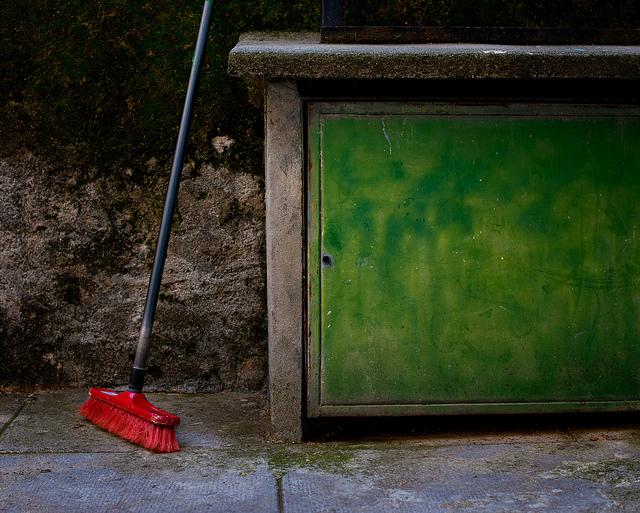Hard news as the sharp edge of Oz soft power
Posted By Graeme Dobell on June 25, 2018 @ 06:00

The old joke that it’s easy to have an open mind if you’ve got an empty mind has a Canberra version.
The rejigged jibe judges that it’s simpler to run an inquiry if the policy cupboard is bare—there’s not much existing policy in place and new stuff has plenty of space to land.
The tough truth about the review of Australia’s media reach and role in the Asia–Pacific [1] is that it can have an open mind because so much of the policy space is empty. The policy cupboard is a repository of husks and wasting assets: much lost heritage must be reclaimed and a lot of muscle rebuilt.
Australia has largely vacated the news and journalism contest in the Asia–Pacific.
Canberra stopped thinking about what good journalism could do for the region, and for Australia’s vital interests.
The fashionable chatter became new technology and Oz soft power, losing sight of deep truths about the role of journalism. Soft power trumped hard news.
The national broadcaster with a core international responsibility—the Australian Broadcasting Corporation—followed Canberra’s dismissive lead.
The Coalition government decided it didn’t need to pay for international television. The ABC, in turn, cut people and money from Radio Australia, shedding much that had been built over eight decades.
Australia turned its back on its journalistic heritage in our region as so last century, discarded as old-fashioned stuff using old technology.
Mark all that as poor history, lousy policy and appalling judgement.
Suddenly lots of old media agendas are fresh headaches for Australia. The problems of propaganda and polluted facts are back, rebadged as fake news.
The policy contest ranges from news to belief systems, zooming through dimensions: it’s about good journalism, technology changing at warp speed, and defining the national interest as the international system morphs and melts.
Canberra cries about challenges to the rules-based system, in a worried tone tinged with bewilderment, a sense that it shouldn’t be going like this.
The bewildered tremor—the ‘What’s happening?’ sentiment—is there in the terms of reference for the review of Australian broadcasting services in the Asia–Pacific [1].
The purpose/objective of the review ‘is to assess the reach of Australia’s media in the Asia Pacific region, including examining whether shortwave radio technology should be used’. The review is instructed to analyse:
- the coverage and access of existing Australian media services in the Asia Pacific region
- the use and value of Australian shortwave technology in the Asia Pacific region.
And the review will cover:
- all media distribution platforms (television, radio and online)
- commercial, community and publicly funded services
- different types of technologies such as analogue, digital and satellite radio and television services and online services.
As terms of reference go, this is open-minded. No tightly worded instruction to get a pre-determined outcome. These are the broad orders to an orphan inquiry—one the government didn’t want [2]—that confronts questions both urgent and important.
As an aside, a hint of the inquiry’s orphan nature is that it doesn’t employ the Turnbull government’s preferred regional label, Indo-Pacific, as used in the defence and foreign white papers. The Asia–Pacific moniker reflects the language of the original political deal to hold the inquiry.
No matter. Indo-Pacific or Asia–Pacific, the inquiry being run by Foreign Affairs and Communications is a chance for a rethink and a reset for the government and the ABC.
The rethink can start with putting in the journalistic muscle and vision so lacking in the Turnbull government’s foreign policy white paper [3].
The white paper was happy to talk about ‘media’ (14 instances) but didn’t once mention ‘journalism’ or ‘broadcasting’. This was passing strange, given that the final of the eight chapters was devoted to ‘Partnerships and soft power’, stressing the ‘vital’ foreign-policy need for persuasive Oz soft power to influence the behaviour or thinking of others.
The closest reference to journos was a tick for Australia’s ‘robust independent media’ as an element of ‘our democracy’.
The bewilderment, though, was all through the white paper, lamenting that ‘global governance is becoming harder’ and the international order is being contested by ‘measures short of war’, including ‘economic coercion, cyber attacks, misinformation and media manipulation’.
The white paper fretted that Australia must be ready to ‘dispel misconceptions and ensure our voice is heard when new and traditional media are used to sow misinformation or misrepresent Australian policies’.
The paper’s answer to all this was lots of soft power and digital engagement.
Foreign Affairs now joins Communications to give these big questions another go. This time there will have to be a lot said about the future of Australian journalism in our relations with the Asia–Pacific: the power of hard news as the sharp edge of our soft power.
Article printed from The Strategist: https://aspistrategist.ru
URL to article: /hard-news-as-the-sharp-edge-of-oz-soft-power/
URLs in this post:
[1] review of Australia’s media reach and role in the Asia–Pacific: https://www.communications.gov.au/have-your-say/review-australian-broadcasting-services-asia-pacific
[2] orphan inquiry—one the government didn’t want: /hello-21st-century-australia-calling/
[3] foreign policy white paper: https://www.fpwhitepaper.gov.au/
Click here to print.